The Distinguished Preceptor Award recognizes a graduate providing long-standing support and commitment to the mission and work of Frontier Nursing Service and Frontier Nursing University through precepting students. The 2024 recipient of this award is Dr. Sandi Mellor, DNP, APRN, FNP.
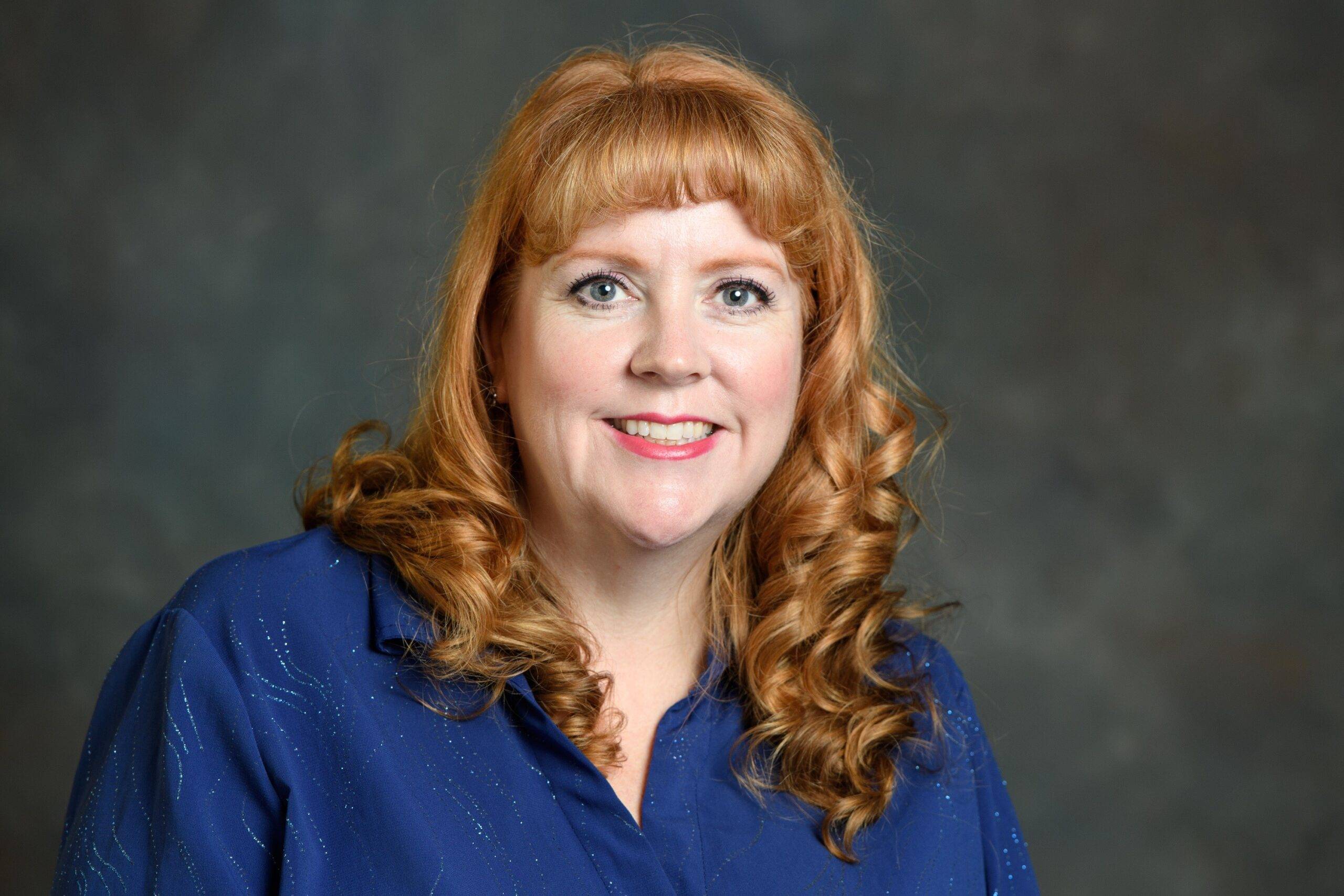 Growing up in her hometown of Tulsa, Oklahoma, Dr. Sandi Mellor, DNP (Class 30), APRN, FNP-BC, knew at a young age that she wanted to pursue a career in healthcare so she could “help people get healthy and stay healthy.” Determined to do just that, she took a medical-surgical nursing class while still in high school. After high school, she worked towards her associate degree in nursing and worked as a nurse for three years for the National Health Authority in Bedford, England, where her husband was stationed as a member of the U.S. Air Force.
Growing up in her hometown of Tulsa, Oklahoma, Dr. Sandi Mellor, DNP (Class 30), APRN, FNP-BC, knew at a young age that she wanted to pursue a career in healthcare so she could “help people get healthy and stay healthy.” Determined to do just that, she took a medical-surgical nursing class while still in high school. After high school, she worked towards her associate degree in nursing and worked as a nurse for three years for the National Health Authority in Bedford, England, where her husband was stationed as a member of the U.S. Air Force.
“I thought I wanted to be a physician, but after taking my first nursing medical-surgical class in high school, I fell in love with being with the patients,” said Mellor, who has worked as a nurse for almost thirty years.
Upon returning to the United States, she went back to school and earned a bachelor of science in nursing in 1998. While raising two sons, she worked in the cardiac intensive care unit, pediatric intensive care unit, and neonatal intensive care unit, as well as the trauma and emergency room. She recognized that many of these patients required not only emergency or urgent care but also primary care management of their comorbidities. Inspired to serve the underserved, she went back to school to become a family nurse practitioner. She earned her FNP in 2004, the same year she and her husband had a baby daughter.
They moved back to Tulsa in 2007, where Mellor began training internal medicine residents how to be providers. She also began precepting FNP students. She left the resident clinic setting in January 2010 to open her first family practice, where she found more opportunities to precept and teach BSN and FNP students while serving the underserved. At her clinic, Mellor accepts those on Medicaid or without insurance and has Spanish-speaking translators on staff to help make sure all are welcome. At the second clinic that she opened, Neighborhood Medical Clinic, Mellor provides both family and urgent care.
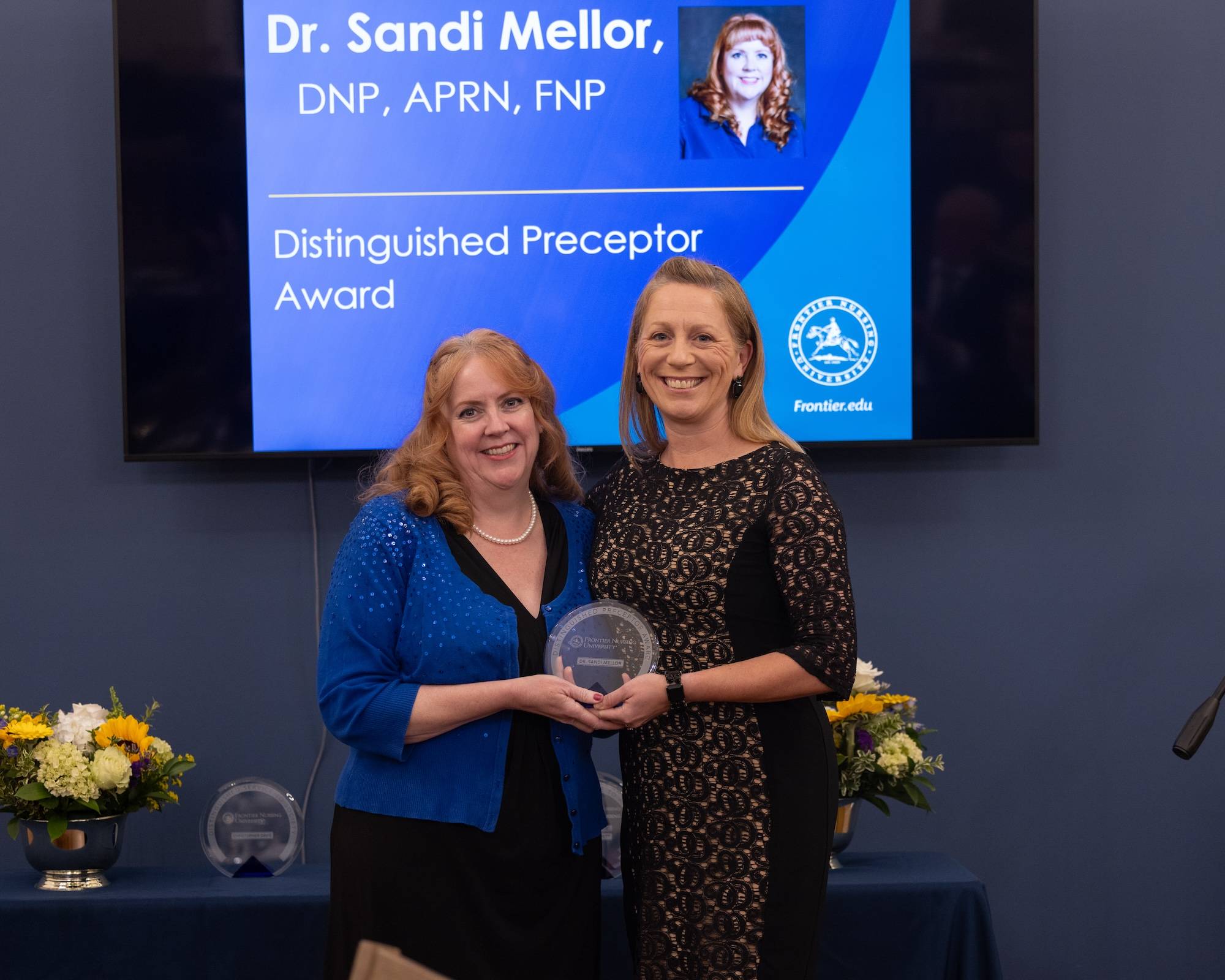
“I always wanted to serve the underserved and felt called to nursing,” Mellor said. “I can see the entire family and treat them, with or without insurance. I can give free care to families. I see one child that has strep throat, and I can see the other children in the family and the parents and do not have to charge each of them because I own the practice.”
Mellor’s practice not only provides essential service to the community but also serves as a training ground for others who follow in her footsteps. She is eager to precept students, including approximately a dozen from Frontier Nursing University, with a time commitment of nearly 600 hours per student.
“I decided to earn my DNP from Frontier Nursing University as I had precepted so many students from there and found it to be a very prestigious program,” said Mellor, who earned her DNP in 2019. “Their FNP students were prepared and knowledgeable. I also researched the DNP program, and it was and still is one of the top in the nation. (FNU Director of the Doctor of Nursing Practice Program) Dr. Khara’ Jefferson (DNP, APRN, FNP-C, CHC) was patient and guided me to “trust the process”, and I was able to complete a project I was truly proud of that is still in use today. I was able to make a change in a vulnerable population and serve the underserved. It has helped me guide Quality Improvement projects at my clinic, teach in the FNP/DNP programs, and always encourage others to maintain the highest standards of nursing by continuing their education.”
Not only has the passion that Mellor had for nursing and helping others as a child never waned, but it has grown stronger and deeper as she has seen the impact that she can have in her community and beyond.
“I enjoy teaching and precepting because I get to see the ‘aha’ moments where the theory/didactic and practice guidelines make sense in clinical practice,” Mellor said. “I get to see the growth of a student becoming what they dreamed of earning – their RN or FNP qualifications. I get to influence and help the next generation of nurse practitioners to maintain our high standards and continue to improve the quality of healthcare for all. I get to be part of the positive change in healthcare as NPs increase their presence and roles in providing care for everyone.”
In addition to teaching through precepting, Mellor also has ventured into course development and classroom teaching. She wrote the FNP courses and taught the first three graduating classes from the University of Tulsa FNP program. She has also worked with Oral Roberts University and the University of Oklahoma.
“It is a way to give back to the nursing profession that has given me so much and fulfilled my calling,” Mellor said. “I want to write a book about nurses, and I hope I can continue to work as a nurse practitioner, precept, and teach all levels of nursing as well. I am interested in earning my PMHNP certification as well as continuing to serve my community. I will continue to advocate for full-practice authority and showcase the benefits nurse practitioners bring to bridging the gap in healthcare.”
Her advocacy efforts have included volunteering for the American Nurses Credentialing Center (ANCC) FNP content expert panel. To date, she has served on the panel for six years, including two as the elected chair of the panel.
“Nurses have to be the change we need in healthcare,” Mellor said, explaining her interest in being an advocate. “We are the largest population and the most trusted for many reasons. So we must be the ones to lead those positive changes towards improvement.”
And to help people get healthy and stay healthy.
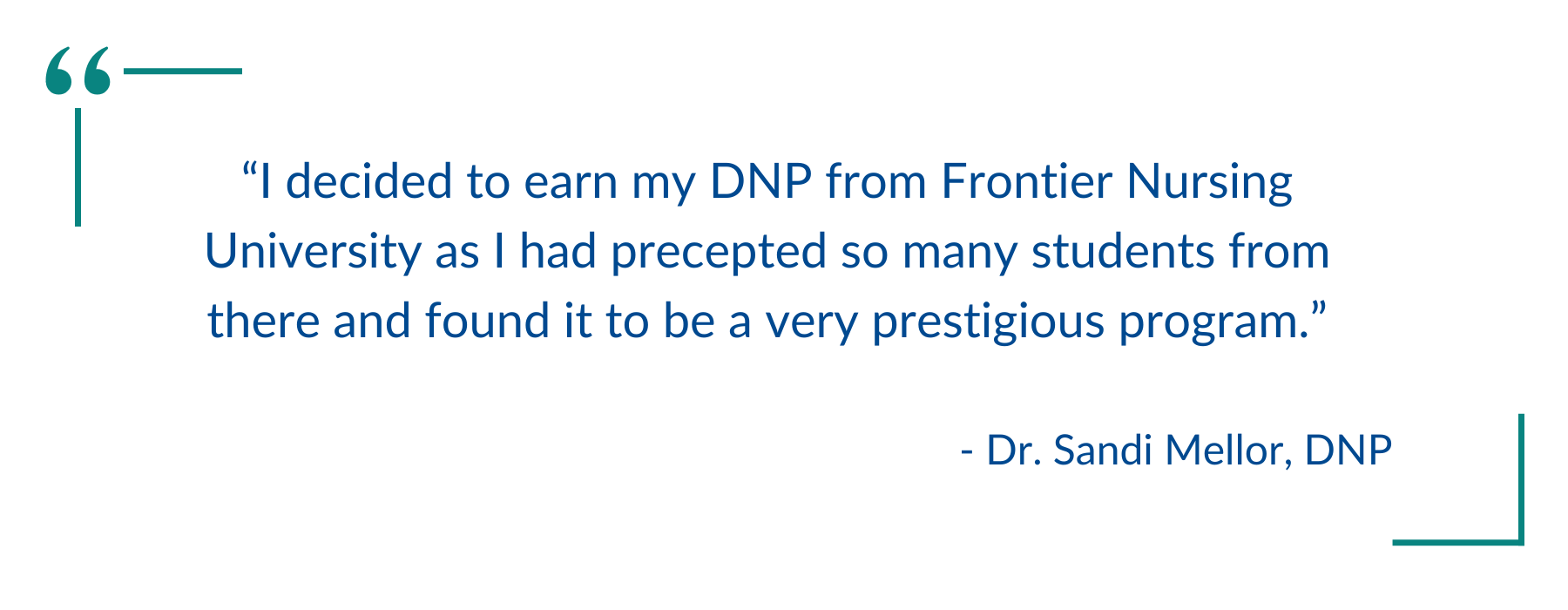
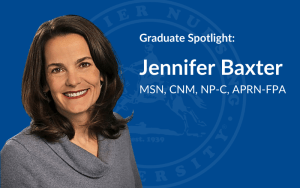
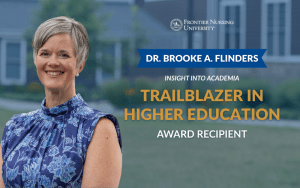


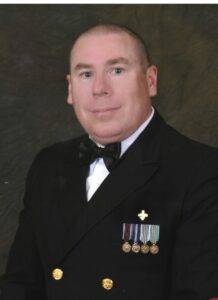
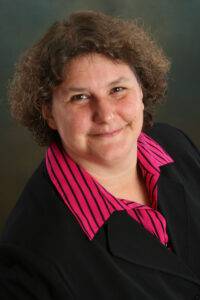

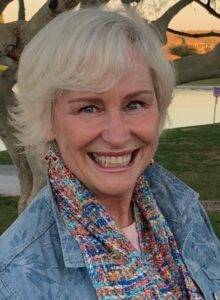
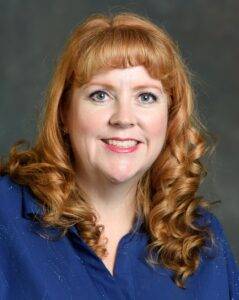
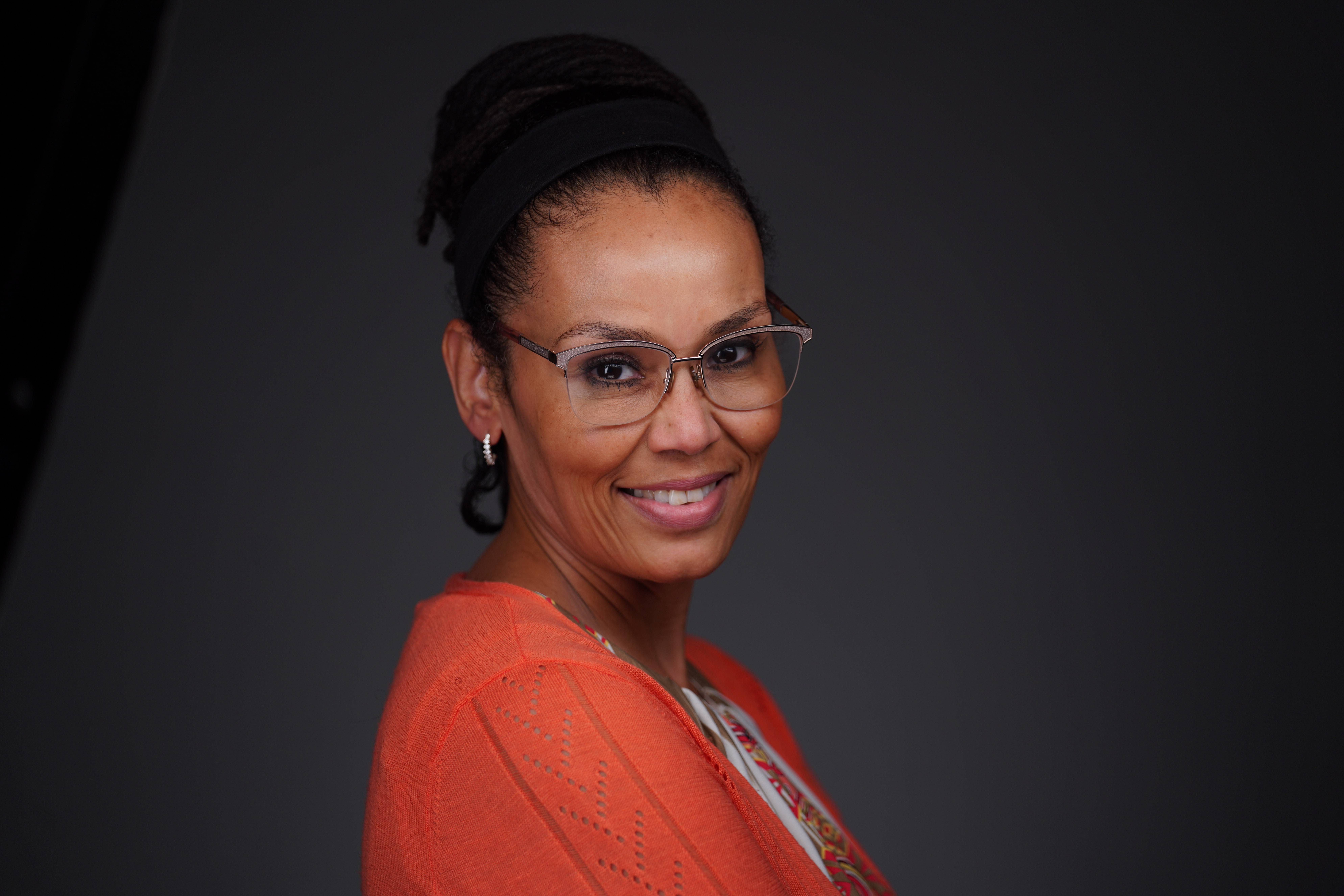 Tarnia Newton, DNP (Class 28), FNP-C, has seen a shift in nursing and the understanding of the importance of culturally concordant care in healthcare outcomes.
Tarnia Newton, DNP (Class 28), FNP-C, has seen a shift in nursing and the understanding of the importance of culturally concordant care in healthcare outcomes.
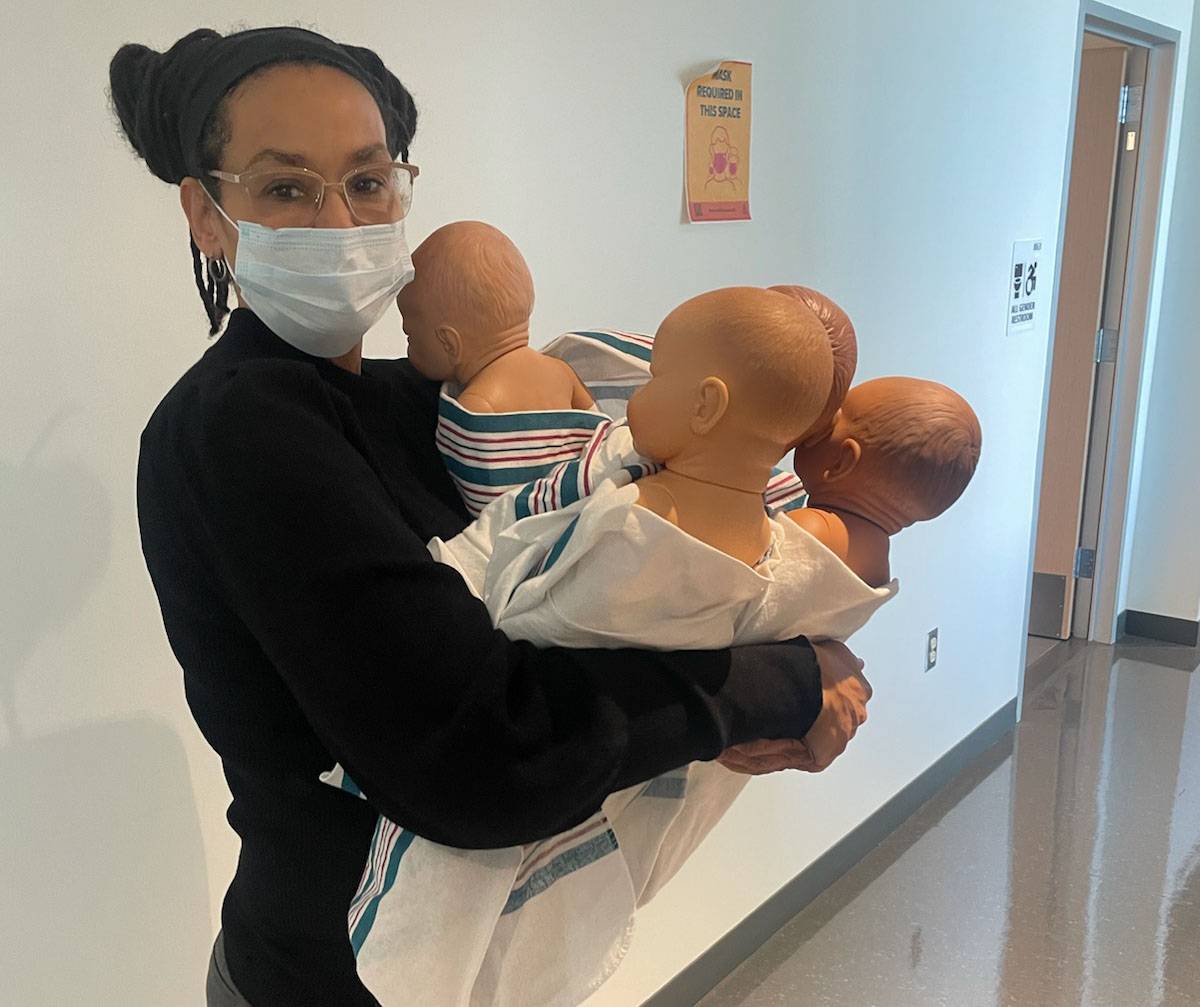
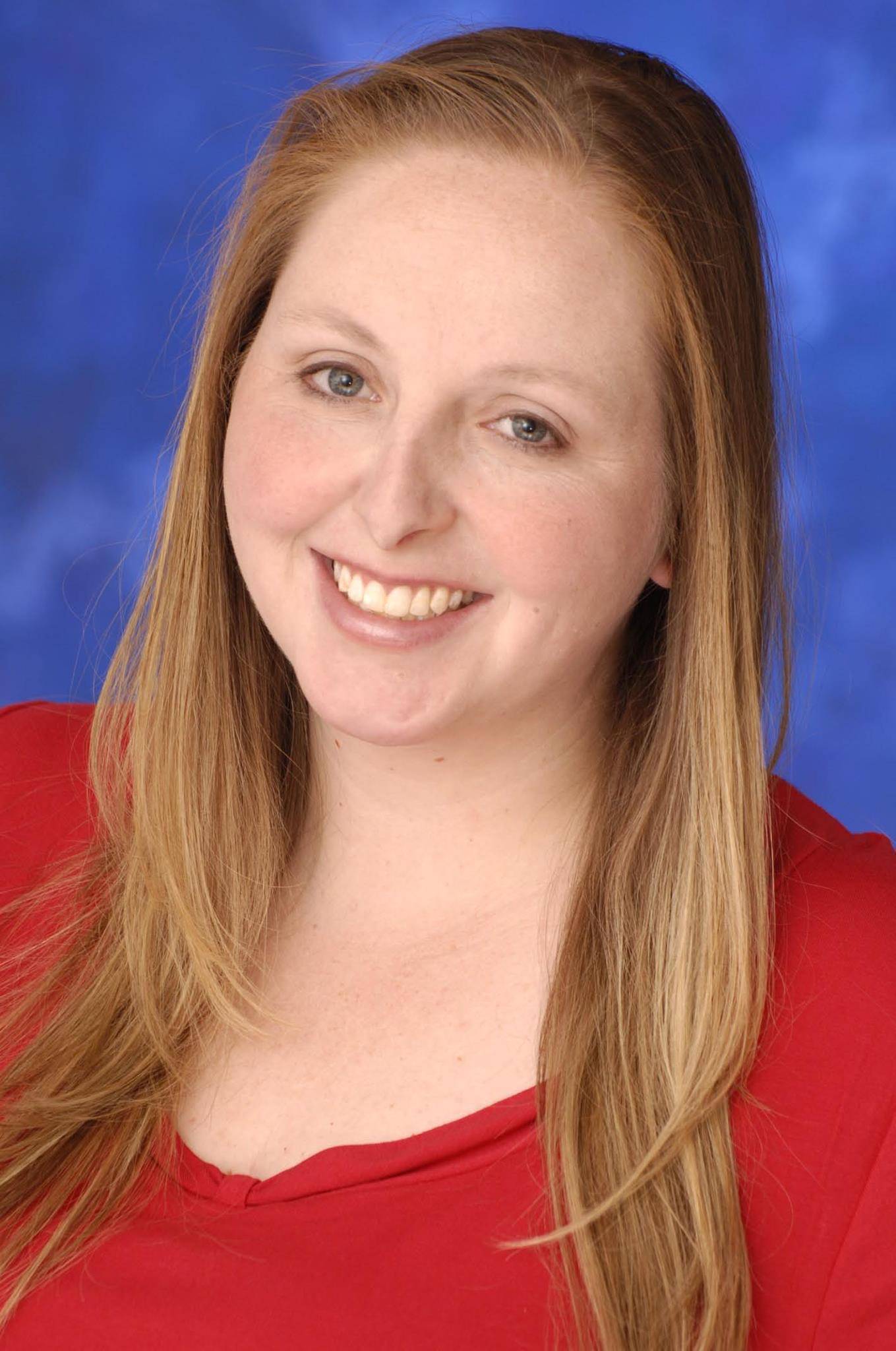

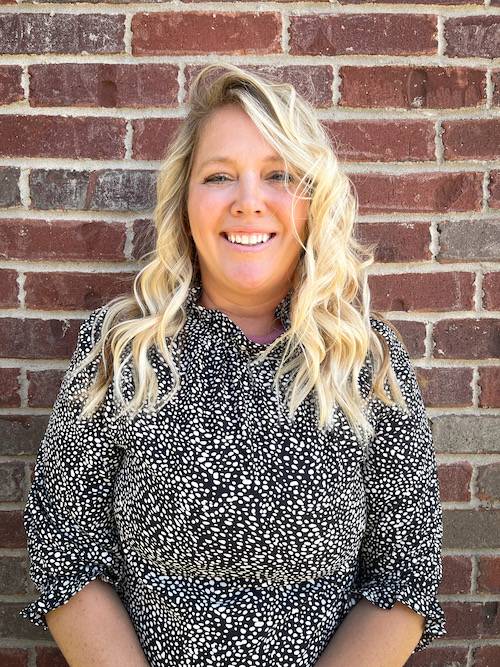 Through her role as a registered nurse, FNU student Emily Tubbs works every day to help underserved patients in her community. A resident of Hooper, Utah, Tubbs works as a referral triage nurse for a local Rheumatology clinic.
Through her role as a registered nurse, FNU student Emily Tubbs works every day to help underserved patients in her community. A resident of Hooper, Utah, Tubbs works as a referral triage nurse for a local Rheumatology clinic.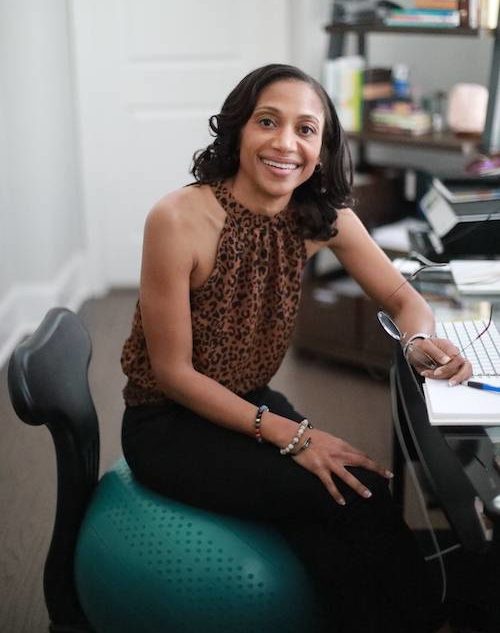 Throughout her time working with FNU, Khara’ Jefferson, DNP, APRN, FNP-C, CHC has been a champion for higher education among nurses. As Director of the university’s
Throughout her time working with FNU, Khara’ Jefferson, DNP, APRN, FNP-C, CHC has been a champion for higher education among nurses. As Director of the university’s 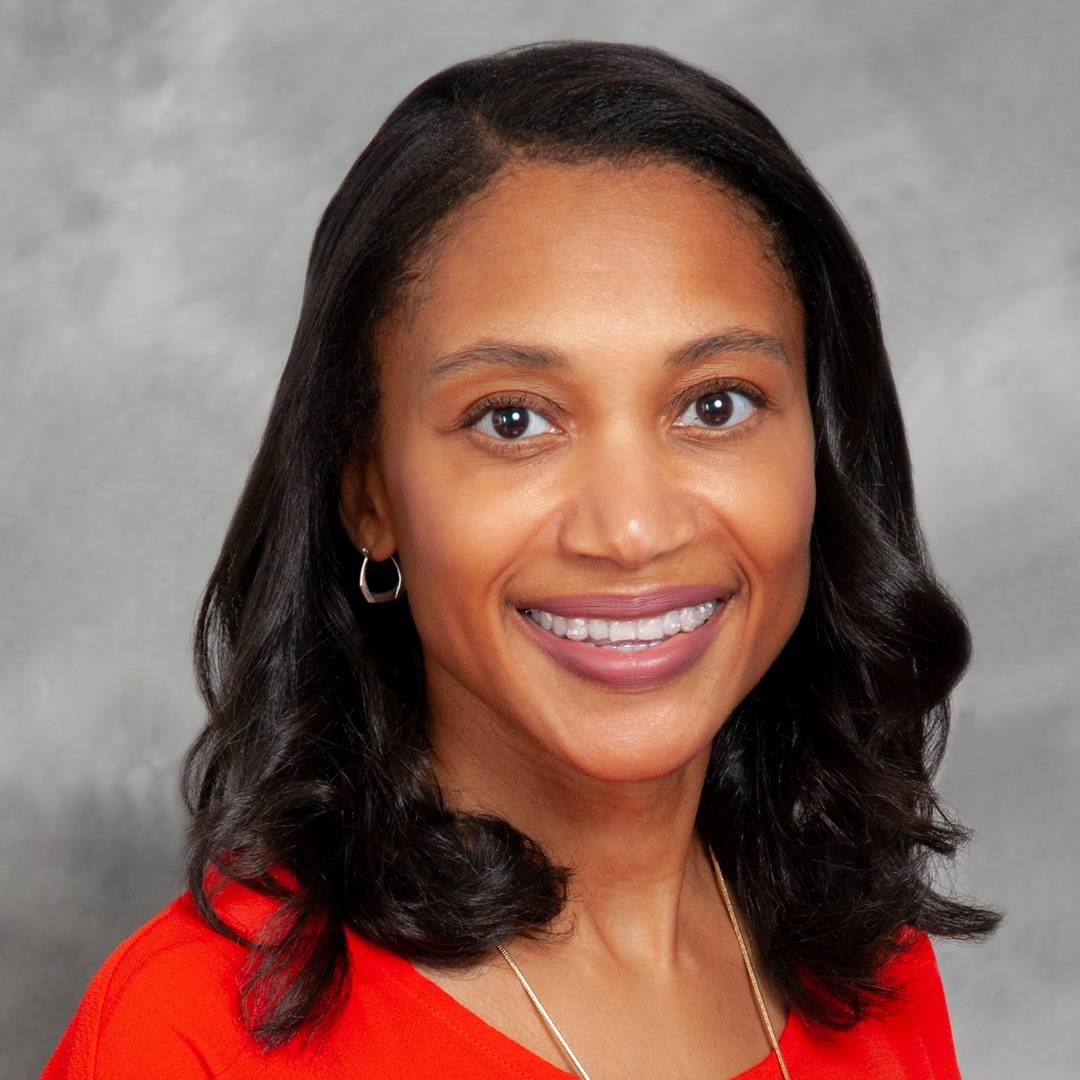 ”FNU’s DNP program is designed to improve healthcare outcomes and the delivery of primary health through enhanced nursing leadership…I think you really become part of a family, part of a community when you come to Frontier.”
”FNU’s DNP program is designed to improve healthcare outcomes and the delivery of primary health through enhanced nursing leadership…I think you really become part of a family, part of a community when you come to Frontier.”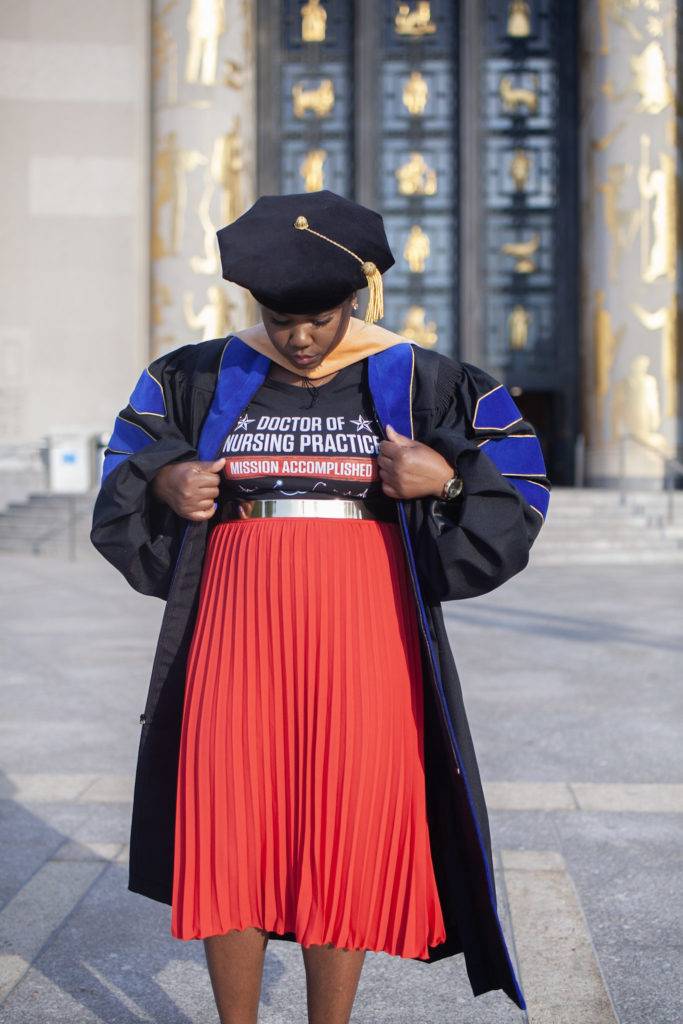 The Culture of Caring Within the DNP Program
The Culture of Caring Within the DNP Program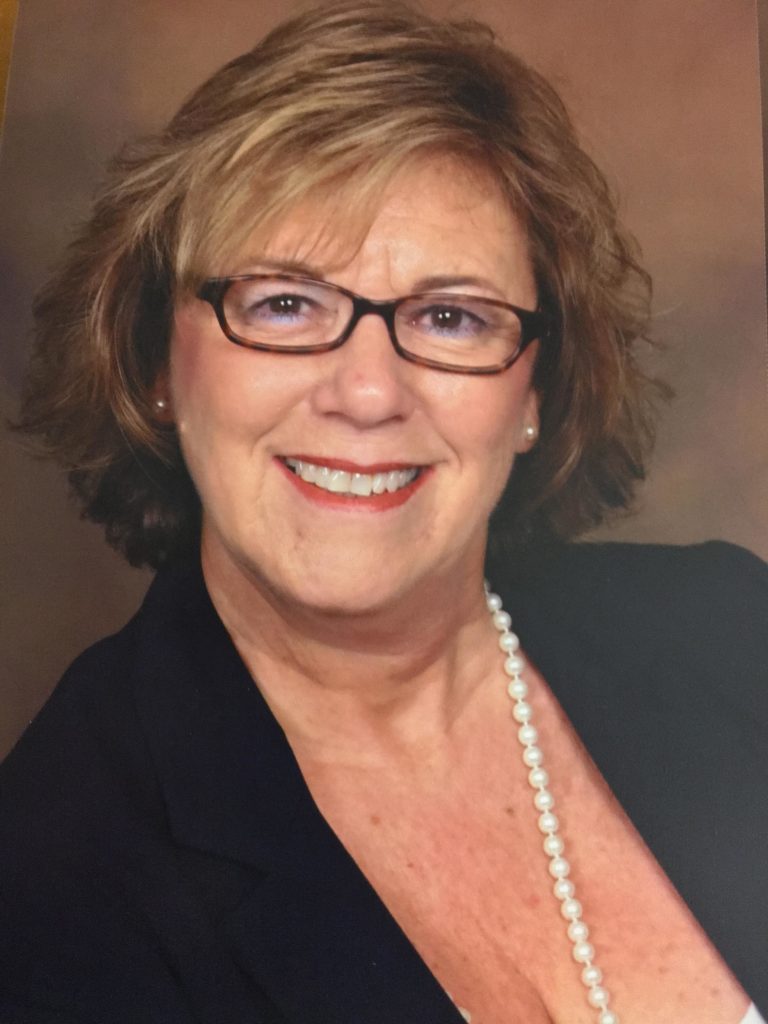 The National Academies of Practice (NAP) recently announced the election of Dr. Vicky Stone-Gale, DNP, APRN, FNP-BC, FAANP, FNAP, as a Distinguished 2022 Fellow.
The National Academies of Practice (NAP) recently announced the election of Dr. Vicky Stone-Gale, DNP, APRN, FNP-BC, FAANP, FNAP, as a Distinguished 2022 Fellow. 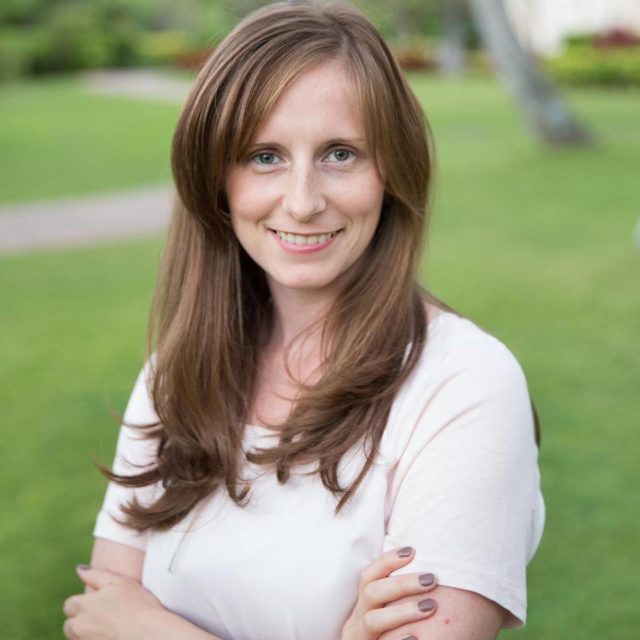 Frontier Nursing University (FNU) student Carrie Baker, MSN, FNP, PMHNP, is utilizing her experience as a nurse practitioner to advocate for the health of her community. Baker is pursuing a
Frontier Nursing University (FNU) student Carrie Baker, MSN, FNP, PMHNP, is utilizing her experience as a nurse practitioner to advocate for the health of her community. Baker is pursuing a 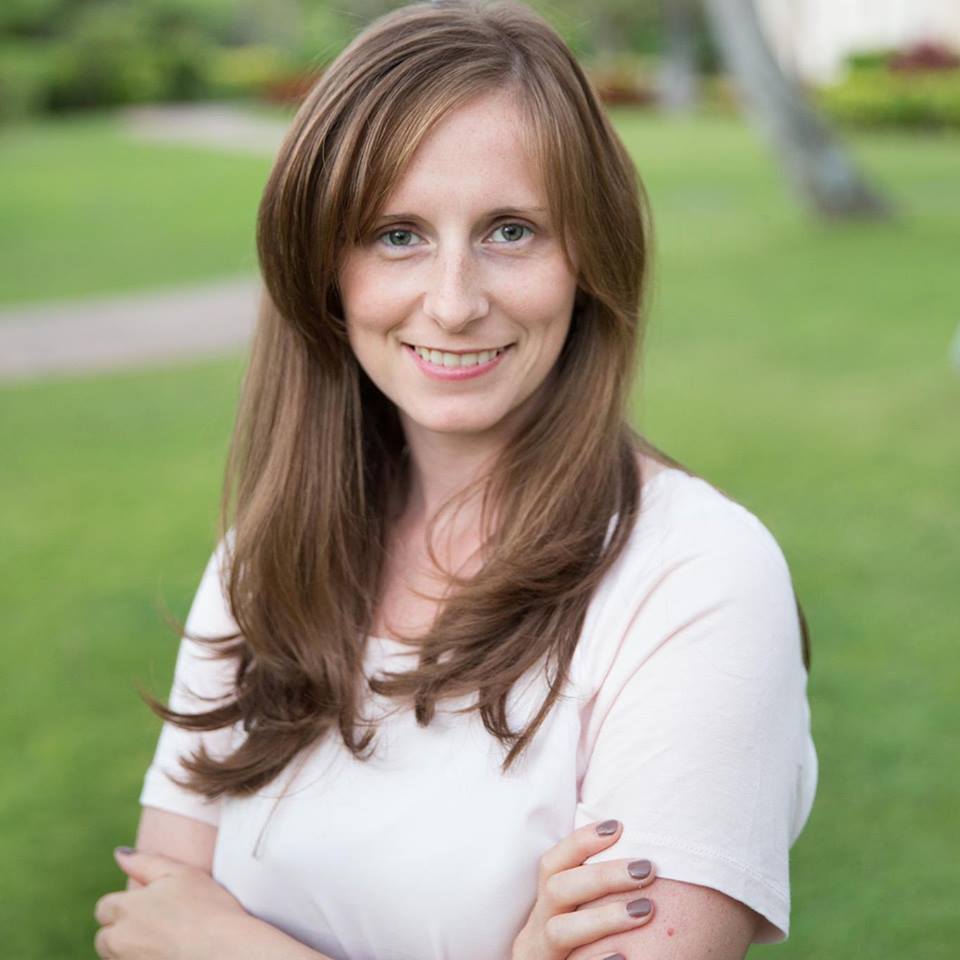 “I decided to become a DNP to gain confidence in being a leader and advocate for my patients and community.”
“I decided to become a DNP to gain confidence in being a leader and advocate for my patients and community.”


















 Carrie Belin is an experienced board-certified Family Nurse Practitioner and a graduate of the Johns Hopkins DNP program, Johns Hopkins Bloomberg School of Public Health, Georgetown University School of Nursing, and Johns Hopkins School of Nursing. She has also completed fellowships at Georgetown and the University of California Irvine.
Carrie Belin is an experienced board-certified Family Nurse Practitioner and a graduate of the Johns Hopkins DNP program, Johns Hopkins Bloomberg School of Public Health, Georgetown University School of Nursing, and Johns Hopkins School of Nursing. She has also completed fellowships at Georgetown and the University of California Irvine. Angie has been a full-scope midwife since 2009. She has experience in various birth settings including home, hospital, and birth centers. She is committed to integrating the midwifery model of care in the US. She completed her master’s degree in nurse-midwifery at Frontier Nursing University (FNU) and her Doctorate at Johns Hopkins University. She currently serves as the midwifery clinical faculty at FNU. Angie is motivated by the desire to improve the quality of healthcare and has led quality improvement projects on skin-to-skin implementation, labor induction, and improving transfer of care practices between hospital and community midwives. In 2017, she created a short film on skin-to-skin called
Angie has been a full-scope midwife since 2009. She has experience in various birth settings including home, hospital, and birth centers. She is committed to integrating the midwifery model of care in the US. She completed her master’s degree in nurse-midwifery at Frontier Nursing University (FNU) and her Doctorate at Johns Hopkins University. She currently serves as the midwifery clinical faculty at FNU. Angie is motivated by the desire to improve the quality of healthcare and has led quality improvement projects on skin-to-skin implementation, labor induction, and improving transfer of care practices between hospital and community midwives. In 2017, she created a short film on skin-to-skin called 










 Justin C. Daily, BSN, RN, has ten years of experience in nursing. At the start of his nursing career, Justin worked as a floor nurse on the oncology floor at St. Francis. He then spent two years as the Director of Nursing in a small rural Kansas hospital before returning to St. Francis and the oncology unit. He has been in his current position as the Chemo Nurse Educator for the past four years. He earned an Associate in Nurse from Hutchinson Community College and a Bachelor of Science in Nursing from Bethel College.
Justin C. Daily, BSN, RN, has ten years of experience in nursing. At the start of his nursing career, Justin worked as a floor nurse on the oncology floor at St. Francis. He then spent two years as the Director of Nursing in a small rural Kansas hospital before returning to St. Francis and the oncology unit. He has been in his current position as the Chemo Nurse Educator for the past four years. He earned an Associate in Nurse from Hutchinson Community College and a Bachelor of Science in Nursing from Bethel College. Brandy Jackson serves as the Director of Undergraduate Nursing Programs and Assistant Educator at Wichita State University and Co-Director of Access in Nursing. Brandy is a seasoned educator with over 15 years of experience. Before entering academia, Brandy served in Hospital-based leadership and Critical Care Staff nurse roles. Brandy is passionate about equity in nursing education with a focus on individuals with disabilities. Her current research interests include accommodations of nursing students with disabilities in clinical learning environments and breaking down barriers for historically unrepresented individuals to enter the nursing profession. Brandy is also actively engaged in Interprofessional Education development, creating IPE opportunities for faculty and students at Wichita State. Brandy is an active member of Wichita Women for Good and Soroptimist, with the goal to empower women and girls. Brandy is a TeamSTEPPS master trainer. She received the DASIY Award for Extraordinary Nursing Faculty in 2019 at Wichita State University.
Brandy Jackson serves as the Director of Undergraduate Nursing Programs and Assistant Educator at Wichita State University and Co-Director of Access in Nursing. Brandy is a seasoned educator with over 15 years of experience. Before entering academia, Brandy served in Hospital-based leadership and Critical Care Staff nurse roles. Brandy is passionate about equity in nursing education with a focus on individuals with disabilities. Her current research interests include accommodations of nursing students with disabilities in clinical learning environments and breaking down barriers for historically unrepresented individuals to enter the nursing profession. Brandy is also actively engaged in Interprofessional Education development, creating IPE opportunities for faculty and students at Wichita State. Brandy is an active member of Wichita Women for Good and Soroptimist, with the goal to empower women and girls. Brandy is a TeamSTEPPS master trainer. She received the DASIY Award for Extraordinary Nursing Faculty in 2019 at Wichita State University.  Dr. Sabrina Ali Jamal-Eddine is an Arab-disabled queer woman of color with a PhD in Nursing and an interdisciplinary certificate in Disability Ethics from the University of Illinois Chicago (UIC). Dr. Jamal-Eddine’s doctoral research explored spoken word poetry as a form of critical narrative pedagogy to educate nursing students about disability, ableism, and disability justice. Dr. Jamal-Eddine now serves as a Postdoctoral Research Associate in UIC’s Department of Disability and Human Development and serves on the Board of Directors of the National Organization of Nurses with Disabilities (NOND). During her doctoral program, Sabrina served as a Summer Fellow at a residential National Endowment of the Humanities (NEH) Summer Institute at Arizona State University (2023), a summer fellow at Andrew W. Mellon’s National Humanities Without Walls program at University of Michigan (2022), a Summer Research Fellow at UC Berkeley’s Othering & Belonging Institute (2021), and an Illinois Leadership Education in Neurodevelopmental and related Disabilities (LEND) trainee (2019-2020).
Dr. Sabrina Ali Jamal-Eddine is an Arab-disabled queer woman of color with a PhD in Nursing and an interdisciplinary certificate in Disability Ethics from the University of Illinois Chicago (UIC). Dr. Jamal-Eddine’s doctoral research explored spoken word poetry as a form of critical narrative pedagogy to educate nursing students about disability, ableism, and disability justice. Dr. Jamal-Eddine now serves as a Postdoctoral Research Associate in UIC’s Department of Disability and Human Development and serves on the Board of Directors of the National Organization of Nurses with Disabilities (NOND). During her doctoral program, Sabrina served as a Summer Fellow at a residential National Endowment of the Humanities (NEH) Summer Institute at Arizona State University (2023), a summer fellow at Andrew W. Mellon’s National Humanities Without Walls program at University of Michigan (2022), a Summer Research Fellow at UC Berkeley’s Othering & Belonging Institute (2021), and an Illinois Leadership Education in Neurodevelopmental and related Disabilities (LEND) trainee (2019-2020). Vanessa Cameron works for Vanderbilt University Medical Center in Nursing Education & Professional Development. She is also attending George Washington University and progressing towards a PhD in Nursing with an emphasis on ableism in nursing. After becoming disabled in April 2021, Vanessa’s worldview and perspective changed, and a recognition of the ableism present within healthcare and within the culture of nursing was apparent. She has been working since that time to provide educational foundations for nurses about disability and ableism, provide support for fellow disabled nursing colleagues, and advocate for the disabled community within healthcare settings to reduce disparities.
Vanessa Cameron works for Vanderbilt University Medical Center in Nursing Education & Professional Development. She is also attending George Washington University and progressing towards a PhD in Nursing with an emphasis on ableism in nursing. After becoming disabled in April 2021, Vanessa’s worldview and perspective changed, and a recognition of the ableism present within healthcare and within the culture of nursing was apparent. She has been working since that time to provide educational foundations for nurses about disability and ableism, provide support for fellow disabled nursing colleagues, and advocate for the disabled community within healthcare settings to reduce disparities. Dr. Lucinda Canty is a certified nurse-midwife, Associate Professor of Nursing, and Director of the Seedworks Health Equity in Nursing Program at the University of Massachusetts Amherst. She earned a bachelor’s degree in nursing from Columbia University, a master’s degree from Yale University, specializing in nurse-midwifery, and a PhD from the University of Connecticut. Dr. Canty has provided reproductive health care for over 29 years. Her research interests include the prevention of maternal mortality and severe maternal morbidity, reducing racial and ethnic health disparities in reproductive health, promoting diversity in nursing, and eliminating racism in nursing and midwifery.
Dr. Lucinda Canty is a certified nurse-midwife, Associate Professor of Nursing, and Director of the Seedworks Health Equity in Nursing Program at the University of Massachusetts Amherst. She earned a bachelor’s degree in nursing from Columbia University, a master’s degree from Yale University, specializing in nurse-midwifery, and a PhD from the University of Connecticut. Dr. Canty has provided reproductive health care for over 29 years. Her research interests include the prevention of maternal mortality and severe maternal morbidity, reducing racial and ethnic health disparities in reproductive health, promoting diversity in nursing, and eliminating racism in nursing and midwifery. Dr. Lisa Meeks is a distinguished scholar and leader whose unwavering commitment to inclusivity and excellence has significantly influenced the landscape of health professions education and accessibility. She is the founder and executive director of the DocsWithDisabilities Initiative and holds appointments as an Associate Professor in the Departments of Learning Health Sciences and Family Medicine at the University of Michigan.
Dr. Lisa Meeks is a distinguished scholar and leader whose unwavering commitment to inclusivity and excellence has significantly influenced the landscape of health professions education and accessibility. She is the founder and executive director of the DocsWithDisabilities Initiative and holds appointments as an Associate Professor in the Departments of Learning Health Sciences and Family Medicine at the University of Michigan. Dr. Nikia Grayson, DNP, MSN, MPH, MA, CNM, FNP-C, FACNM (she/her) is a trailblazing force in reproductive justice, blending her expertise as a public health activist, anthropologist, and family nurse-midwife to champion the rights and health of underserved communities. Graduating with distinction from Howard University, Nikia holds a bachelor’s degree in communications and a master’s degree in public health. Her academic journey also led her to the University of Memphis, where she earned a master’s in medical anthropology, and the University of Tennessee, where she achieved both a master’s in nursing and a doctorate in nursing practice. Complementing her extensive education, she completed a post-master’s certificate in midwifery at Frontier Nursing University.
Dr. Nikia Grayson, DNP, MSN, MPH, MA, CNM, FNP-C, FACNM (she/her) is a trailblazing force in reproductive justice, blending her expertise as a public health activist, anthropologist, and family nurse-midwife to champion the rights and health of underserved communities. Graduating with distinction from Howard University, Nikia holds a bachelor’s degree in communications and a master’s degree in public health. Her academic journey also led her to the University of Memphis, where she earned a master’s in medical anthropology, and the University of Tennessee, where she achieved both a master’s in nursing and a doctorate in nursing practice. Complementing her extensive education, she completed a post-master’s certificate in midwifery at Frontier Nursing University.









 Dr. Tia Brown McNair is the Vice President in the Office of Diversity, Equity, and Student Success and Executive Director for the Truth, Racial Healing, and Transformation (TRHT) Campus Centers at the American Association of Colleges and Universities (AAC&U) in Washington, DC. She oversees both funded projects and AAC&U’s continuing programs on equity, inclusive excellence, high-impact practices, and student success. McNair directs AAC&U’s Summer Institutes on High-Impact Practices and Student Success, and TRHT Campus Centers and serves as the project director for several AAC&U initiatives, including the development of a TRHT-focused campus climate toolkit. She is the lead author of From Equity Talk to Equity Walk: Expanding Practitioner Knowledge for Racial Justice in Higher Education (January 2020) and Becoming a Student-Ready College: A New Culture of Leadership for Student Success (July 2016 and August 2022 Second edition).
Dr. Tia Brown McNair is the Vice President in the Office of Diversity, Equity, and Student Success and Executive Director for the Truth, Racial Healing, and Transformation (TRHT) Campus Centers at the American Association of Colleges and Universities (AAC&U) in Washington, DC. She oversees both funded projects and AAC&U’s continuing programs on equity, inclusive excellence, high-impact practices, and student success. McNair directs AAC&U’s Summer Institutes on High-Impact Practices and Student Success, and TRHT Campus Centers and serves as the project director for several AAC&U initiatives, including the development of a TRHT-focused campus climate toolkit. She is the lead author of From Equity Talk to Equity Walk: Expanding Practitioner Knowledge for Racial Justice in Higher Education (January 2020) and Becoming a Student-Ready College: A New Culture of Leadership for Student Success (July 2016 and August 2022 Second edition).